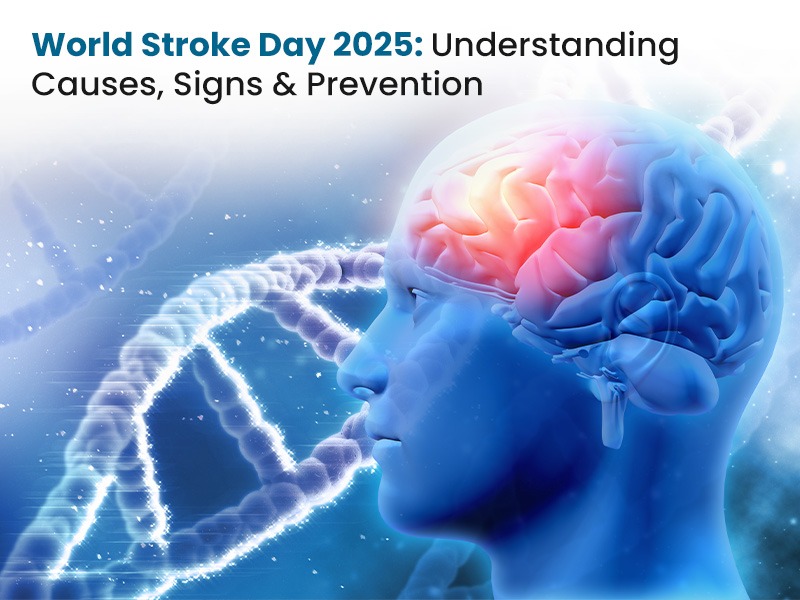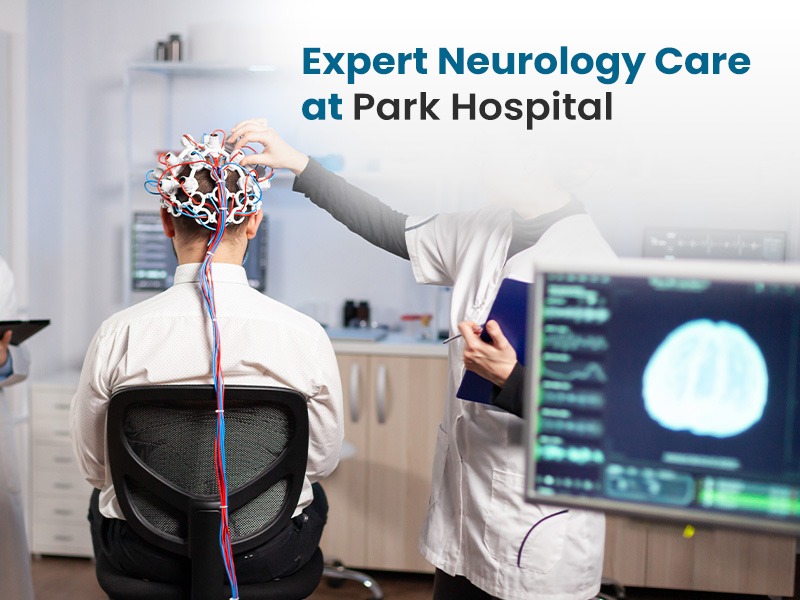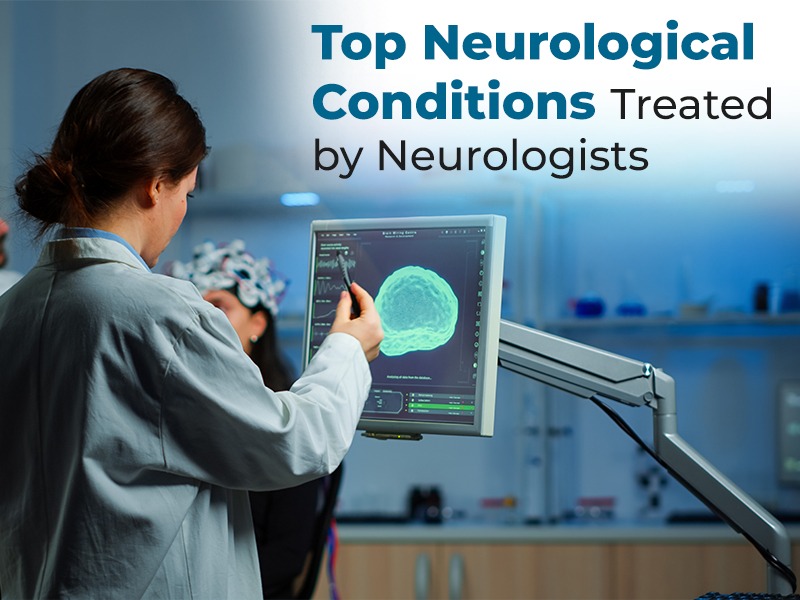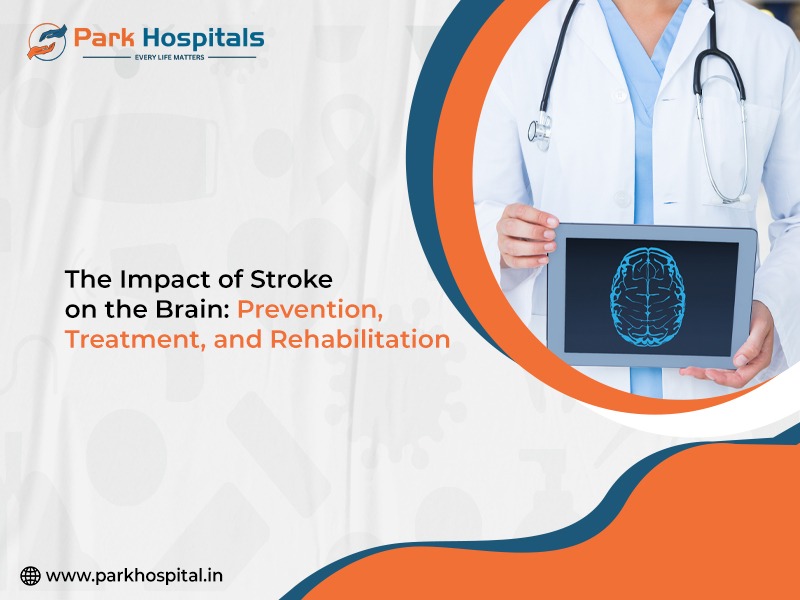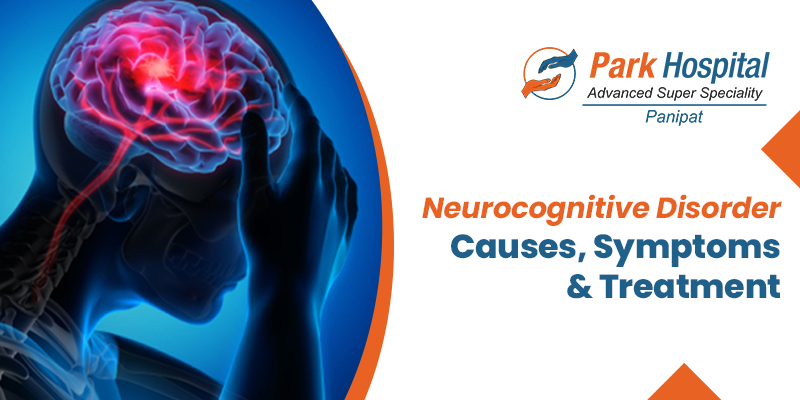Frequent headaches are more than just an inconvenience. They can interfere with your work, concentration, and daily life. If you are experiencing recurring headache episodes or constant head pain, it is important to understand the possible causes and take steps toward proper diagnosis and effective treatment. From tension headaches and sinus issues to migraines and cluster headaches, identifying the reason for frequent headaches is the key to long-term relief and better well-being.
At Park Group of Hospitals, we offer comprehensive care for individuals suffering from frequent headaches through our expert neurology and general medicine teams. Our hospitals are located across Delhi, Gurugram (Sector 47, Palam Vihar, Sector 37 D), Faridabad, Sonipat, Panipat, Karnal, Ambala, Patiala, Mohali, Bathinda, Behror, and Jaipur, ensuring that quality care is accessible to patients in multiple cities.
If you are getting frequent headaches and need immediate help, call our 24x7 emergency services helpline at +91 99166 99166 to book an appointment or consult a specialist.
What Are Frequent Headaches?
Frequent headaches refer to head pain that occurs repeatedly over a short period of time, often affecting your ability to function normally. While occasional headaches are common, experiencing them several times a week or even daily may indicate an underlying issue. These headaches can vary in intensity, duration, and type, ranging from a mild ache to a throbbing, sharp, or constant pain.
There is no single definition of what qualifies as "frequent," but if you are getting headaches more than 15 days a month for at least three months, it may be classified as a chronic or recurring headache condition. In such cases, it is essential to identify the frequent headache causes, which may include dehydration, stress, sinus infection, screen time, eye strain, hormonal changes, or even migraine triggers.
Understanding the pattern and symptoms of your headaches can help healthcare providers determine the exact type and reason for frequent headaches, leading to the right treatment and relief strategies.
Common Causes of Frequent Headaches
Understanding the frequent headache causes is essential for effective management and prevention. Headaches can be triggered by a variety of physical, environmental, and lifestyle-related factors. Here are some of the most common causes:
Dehydration and Diet-Related Triggers
Dehydration is a leading cause of recurring headache episodes. Even a little loss of fluids may impair brain function and cause discomfort. Skipping meals, excessive caffeine, and consuming processed or salty foods can also contribute to frequent headaches.
Stress and Tension Headaches
Stress is one of the most common triggers of a tension headache, often described as a tight band of pain around the head or neck. Emotional pressure, anxiety, or lack of rest can increase muscle tension and lead to daily headaches in some individuals.
Screen Time and Eye-Strain Headache
Excessive screen time, especially without breaks, can cause eye-strain headaches. Staring at computers, mobile phones, or TVs for long hours puts pressure on the eyes and may result in frequent headaches behind the eyes or around the forehead.
Sinus Infection and Sinus Headache
A sinus infection or inflammation of the nasal passages can lead to a sinus headache, which is typically felt around the eyes, cheeks, and forehead. These headaches often worsen when bending forward or during seasonal allergies.
Hormonal Headaches
Fluctuations in hormone levels, particularly in women, may lead to the onset of hormonal headaches. These often occur around menstruation, pregnancy, or menopause, and are commonly linked to estrogen fluctuations.
Migraine Triggers
Migraine is a neurological condition with specific triggers such as flashing lights, strong smells, sleep disturbances, or certain foods. Migraines are different from regular headaches as they are usually accompanied by symptoms such as nausea, light sensitivity, and a throbbing pain that typically affects one side of the head.
Sleep Disturbances and Morning Headaches
Inadequate or poor-quality sleep can result in morning headaches. Conditions like sleep apnea, insomnia, or an inconsistent sleep schedule may lead to constant headaches throughout the day.
Identifying the cause of frequent headaches is the first step toward finding the right treatment. If you are unsure what's triggering your pain, consult a medical professional at Park Group of Hospitals for accurate diagnosis and expert care
Types of Headaches You Might Be Experiencing
Not all headaches are the same. Recognizing the type you experience can help identify the cause and guide the right treatment. Here are some common types:
Tension Headache
The most common type, marked by a dull, aching pain or pressure around the forehead, temples, or back of the neck. Often caused by stress, poor posture, or fatigue.
Migraine
A neurological disorder characterized by severe and pulsating pain, typically affecting only one side of the head. It may include nausea, vomiting, and sensitivity to light or sound. Managing triggers is key.
Cluster Headache
Severe headaches that occur in patterns, typically around one eye. Symptoms may include redness, tearing, or nasal congestion. These are among the most painful types.
Sinus Headache
Caused by sinus inflammation or infection, leading to facial pressure, pain around the eyes, and nasal congestion. It often gets worse with movement or bending forward.
Throbbing or Pulsating Headaches
These involve rhythmic pulsing pain linked to migraines, fever, or blood vessel issues. They may impact either one side or both sides of the head.
Constant or Daily Headaches
Ongoing daily headaches may result from chronic tension, medication overuse, or other medical conditions. A proper medical evaluation is important.
Understanding your headache type helps the specialists at Park Group of Hospitals create a personalized treatment plan to improve your quality of life. Headache Location Meaning: What Left, Right, or One-Sided Pain Reveals
The location of your headache can provide valuable clues about its cause. Whether the pain is on one side, behind the eyes, or focused on the left or right, it often points to a specific type of headache.
One-Sided Headache
Pain on one side of the head is often linked to migraine or cluster headache. It may feel throbbing or piercing and can include symptoms like nausea, light sensitivity, or tearing of the eye.
Left Side Headache
Pain on the left side may be caused by migraine, tension, jaw clenching, or sinus pressure. Frequent episodes may signal nerve-related or muscular issues.
Right Side Headache
Similar to left-sided pain, right-sided headaches can result from migraine, dehydration, or muscle tension. Persistent symptoms may require medical evaluation.
Headache Behind the Eyes
Often caused by sinus issues, eye strain, or cluster headaches. Prolonged screen use, poor posture, or uncorrected vision problems can contribute to this discomfort.
Identifying the headache location helps narrow down the cause. For recurring one-sided pain or headaches behind the eyes, consult the specialists at Park Group of Hospitals for expert diagnosis and personalized care.
Headache vs Migraine: Key Differences in Symptoms and Treatment
While often confused, headaches and migraines are different in cause, intensity, and symptoms. Recognizing these differences is essential for selecting the most appropriate treatment option.
What Is a Headache?
A headache refers to pain in the head or neck, often due to stress, dehydration, eye strain, or sinus issues. The pain is usually mild to moderate and feels like pressure or tightness.
Common types include tension headaches, sinus headaches, and cluster headaches.
Pain is mild to moderate
Duration is typically a few hours
Rarely involves nausea or light sensitivity
What is a Migraine?
A migraine is a neurological condition that leads to severe, throbbing or pulsating pain, usually felt on one side of the head. It is often accompanied by nausea, sensitivity to light or sound, and sometimes visual disturbances.
Pain is moderate to severe
Last for several hours or continue for a few days
It is usually associated with symptoms like fatigue, feeling sick, and increased sensitivity to light and sound
Can be brought on by factors like changes in hormones, insufficient rest, or specific dietary items
Treatment Differences
Headaches are often relieved with rest, hydration, or over-the-counter painkillers
Migraines may need prescription medicines, lifestyle changes, and specialist care
If you experience frequent headaches or suspect migraines, consult the neurologists at Park Group of Hospitals for accurate diagnosis and tailored treatment.
When Should You Worry About Frequent Headaches
Occasional headaches are common, but frequent or recurring ones should not be ignored. They may signal an underlying medical issue that needs prompt evaluation.
Warning Signs to Watch For
Consult a doctor if you experience:
Headaches more than 15 days a month
Sudden, severe headache unlike any before
Headaches that wake you from sleep
Vision, speech, or balance problems
Numbness or weakness on one side
Headache after a head injury
Persistent morning headaches
Fever, stiff neck, or confusion
Pain that worsens or does not improve with treatment
Possible Underlying Causes
Frequent headaches may be linked to:
Chronic migraine or cluster headache
Medication overuse
Sinus infections
High blood pressure
Neurological disorders
Rare but serious issues like brain tumour or internal bleeding
If headaches are affecting your daily life or come with unusual symptoms, consult the specialists at Park Group of Hospitals. Our team offers expert diagnosis and advanced neurological care to find and treat the root cause.
Home Remedies for Frequent Headaches
While chronic or severe headaches may need medical attention, many find relief through simple home remedies for frequent headaches. These natural methods can ease pain caused by stress, dehydration, or screen fatigue.
Stay Hydrated
Dehydration is a common trigger. Drink 7 to 8 glasses of water daily, especially in hot weather or after physical activity.Cold or Warm Compress
Use a cold compress on the forehead for migraine relief. A warm compress around the neck helps ease tension headaches.Rest in a Dark, Quiet Room
Helpful during migraine attacks or headaches triggered by noise, stress, or light sensitivity.Practice Relaxation Techniques
Stress is a major cause of tension and cluster headaches. Try deep breathing, meditation, or yoga.Limit Screen Time
Reduce eye-strain headaches by following the 20-20-20 rule and adjusting screen brightness and posture.Use Essential Oils
Peppermint or lavender oil may reduce headache pain and promote relaxation.Maintain a Consistent Sleep Schedule
Poor sleep can trigger morning headaches. Get 7-9 hours of good sleep.
These home remedies for frequent headaches can offer relief from common triggers. If pain persists or worsens, consult the specialists at Park Group of Hospitals for expert care and diagnosis.
Over the Counter and Prescription Headache Medicines
When home remedies are not enough, many people seek relief through over the counter and prescription headache medicines. The choice depends on the headache type, severity, and frequency.
Over the Counter Headache Medicines
OTC options are commonly used for mild to moderate headaches like tension, dehydration-related, or eye strain headaches. These may include paracetamol, ibuprofen, naproxen, or aspirin. However, frequent use can lead to medication overuse headaches or rebound headaches.
Prescription Medications for Recurring or Severe Headaches
For chronic or severe cases, prescription options may be suggested by a healthcare provider. These can include triptans for migraines, ergotamines for vascular or cluster headaches, and medications that address associated symptoms like nausea. In some cases, preventive therapies may also be considered.
Important Considerations
Avoid self-medication and follow medical advice
Stick to the recommended dosage
Consult with the doctor of any side effects or lack of relief
A proper diagnosis is key to finding safe and effective long-term treatment. Consult the specialists at Park Group of Hospitals to understand which options are best for your condition.
Effective Migraine Relief and Treatment Options
Migraine is a leading cause of frequent headaches, often linked to nausea, light sensitivity, and throbbing pain. Effective migraine relief combines medical strategies, preventive care, and lifestyle changes.
Immediate Migraine Relief
Early intervention during a migraine episode can be more effective. Healthcare providers may suggest treatments aimed at reducing inflammation, easing pain, or managing nausea, depending on the severity and symptoms.
Preventive Migraine Treatments
For chronic migraines or frequent episodes, preventive options may help reduce their occurrence. These can involve approaches to regulate nerve signals, stabilize blood vessel activity, or reduce migraine-specific triggers.
Non-Medical Migraine Therapies
Supportive methods can also help manage migraines:
Identify and avoid known triggers such as certain foods, stress, or lack of sleep
Keep a consistent sleep schedule and stay well hydrated
Rest in a dark, quiet room or use a cold compress during attacks
Practice relaxation techniques like deep breathing, yoga, or meditation
Long-term migraine management often requires a tailored plan. If migraines are frequent or affect your daily life, consult the experts at Park Group of Hospitals for a comprehensive evaluation and personalized care.
Preventing Frequent Headaches: Tips and Lifestyle Changes
Alongside treatment, preventing frequent headaches is key to long-term relief. Many headaches are linked to daily habits, stress, or environmental triggers. Making simple lifestyle changes can help reduce their frequency and intensity.
Daily Habits to Prevent Headaches
Stay hydrated, as dehydration is a common cause of frequent headaches
Eat balanced meals on time to avoid blood sugar drops
Limit screen time and take regular breaks to prevent eye-strain headaches
Get 7 to 9 hours of quality sleep each night
Sit upright and keep your back straight, particularly when working at a desk for extended time.
Stress Management and Relaxation
Tension headaches are often triggered by stress. Helpful techniques include:
Deep breathing, meditation, or muscle relaxation
Regular physical activity like walking, yoga, or swimming
Setting clear work-life boundaries to avoid burnout
Avoid caffeine and alcohol, as these substances can potentially cause migraines or intense headaches.
Track Your Headache Triggers
Maintaining a headache diary can help identify specific patterns and potential triggers like:
Hormonal changes, especially hormonal headaches in women
Certain foods like aged cheese, processed meats, or MSG
Weather shifts or exposure to strong smells
Intense physical exertion
Recognizing these triggers allows you to work with your doctor to create a personalized plan for preventing frequent headaches.
Conclusion: Don’t Ignore Recurring Headaches
Frequent headaches are not just a temporary discomfort. They can be a sign of an underlying health issue that requires attention. Whether you are dealing with a tension headache, sinus headache, migraine, or cluster headache, understanding the root cause is essential for effective management.
If you are getting frequent headaches, especially with increasing intensity, new symptoms, or if they start interfering with your daily life, it is important to consult a medical expert. The care team at Park Group of Hospitals is equipped to diagnose and treat a wide range of headache-related conditions across our facilities in Delhi, Gurugram, Faridabad, Sonipat, Panipat, Karnal, Ambala, Patiala, Mohali, Bathinda, Behror, and Jaipur.
Do not wait until the pain becomes unbearable. Timely evaluation and treatment can lead to lasting relief and better quality of life.
Frequently Asked Questions (FAQs)
What are frequent headaches and when should I be concerned?
Frequent headaches refer to headaches that occur regularly, often multiple times a week. If your headaches are persistent, increase in severity, occur with nausea, vision issues, or affect your daily life, it is advisable to consult a doctor.
What are the common causes of frequent headaches?
The causes of frequent headaches include dehydration, stress, sinus infections, hormonal changes, eye strain, poor posture, excessive screen time, or underlying conditions like migraine or cluster headaches.
How do I know if it is a migraine or just a regular headache?
Usually, migraine is characterized by intense and throbbing pain that affects one side of the head. It might occur along with feelings of nausea and an increased sensitivity to both light and sound. Tension headaches, which occur frequently, typically cause mild to moderate pain and are accompanied by less intense symptoms. See the section Headache vs Migraine for more details.
Are there any effective home remedies for frequent headaches?
Yes. Home remedies for headache include drinking water, applying a cold or warm compress, practicing relaxation techniques, resting in a dark room, using essential oils like peppermint, and avoiding headache triggers like caffeine or lack of sleep.
When should I visit a doctor for recurring headaches?
You should consult a doctor if your recurring headaches are frequent, getting worse, affecting your daily routine, or accompanied by unusual symptoms like vision loss, confusion, or vomiting. Timely diagnosis ensures proper treatment.





